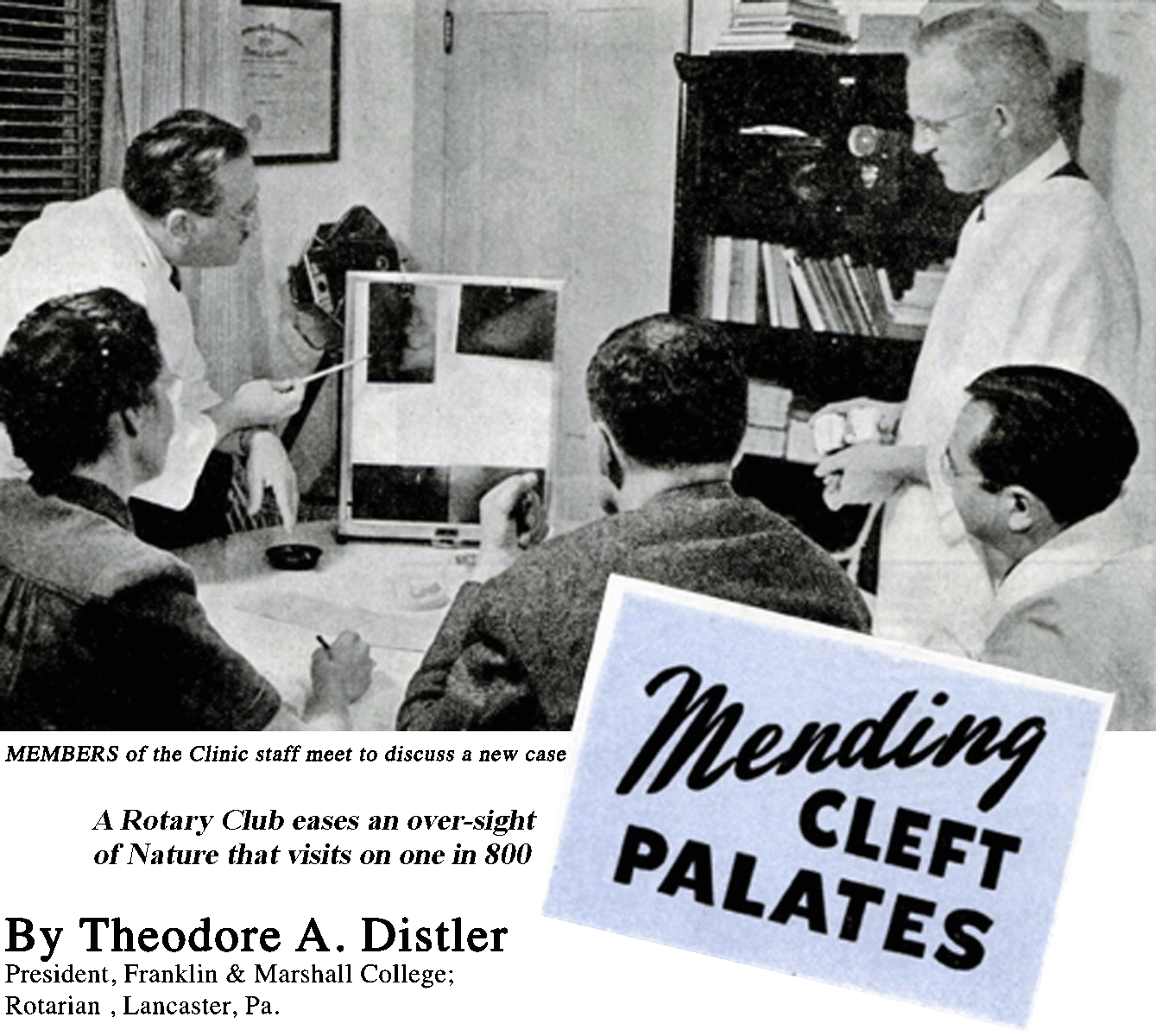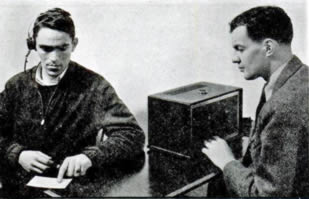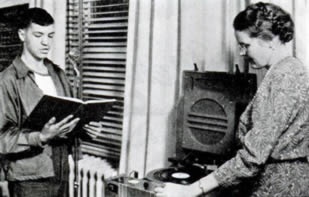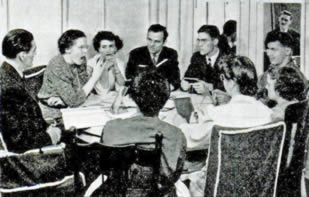
From January 1945 Rotarian Magazine: Cleft Palate Clinic

YOU KNOW what a cleft palate is – yes, what used to be called harelip. It's one of Nature's oversights, which results when the tissues forming the roof of the mouth and upper lip fail to meet.
You've seen people so handicapped in your city. So had residents of Lancaster, Pennsylvania. But this is the story of what happened when one of them, Dr. Herbert Cooper, went to the Lancaster Rotary Club with the suggestion that it could do much to mitigate the slight Nature had dealt these young citizens.
For 28 years, as the doctor well knew, the Lancaster Club had been helping crippled children. But somehow the cleft-palate cases had been overlooked. Dr. Cooper, an orthodontist, had been working on cleft palates since 1933. What was needed, he felt, was a cooperative clinic in which the dentist, the psychologist, the orthodontist, the medical doctor, the surgeon, the speech teacher, the school – in short, every qualified person or agency available – might contribute to the improvement of each case brought in.
Lancaster Rotarians arose at once to the idea – especially the dental and medical members and the Crippled-Children Committee headed by Adam Z. Moore. So the Lancaster Rotary Club Cleft Palate Speech Clinic was established. That was a year and a half ago. Regularly since then the cleftpalate group have met for speech lessons, and have learned, for one thing, to talk without hissing. Young and old, they are securing a new lease on life – are progressing in school and job, and are learning to meet the world with a smile.
It is difficult to explain the medical "why" of cleft palates, although about one in every 800 live births are so afflicted. For some reason not entirely understood, the wedges of tissue which grow out during prenatal life to form the roof of the mouth fail to meet, so that instead of being separate areas, the nasal and mouth cavities are continuous. The extent of the cleft varies with the individual, in some instances running through the lip, the hard palate, the soft palate, and the uvula.
The problem which confronts a cleft-palate child cannot be described simply by naming the physical parts affected. Every phase of his whole being is distorted as a result of his condition — his appearance, his speech, his personality — no item escapes.
Recently a 3-year-old youngster was brought to the Clinic who refused to look up at the staff members. This child had already be come so aware of the difference in her appearance and speech that she was trying to conceal it.
Each individual works out a different solution. Many develop a pattern of retiring from all social situations. Children will refuse to recite in school, choosing to be penalized as though they do not know the answers, rather than to exhibit their indistinct speech, or to call attention to themselves by participating in group activities.
Among the speech difficulties which they face is the inability accurately to produce many of the consonant sounds — "sh," "p," "m," and "n" — which require teeth or lip closure.
Obviously, an essential step in improving the condition of the youngster with a palatal deformity is to provide some separating structure between the nasal and oral cavities. The most frequent correction has been through surgery. However, for many years various individuals have experimented with the use of dental ap pliances as substitute palates held by clasps over the teeth.
One of the most interesting afternoons in the history of the Clinic was spent watching a young boy who had been especially prone to lower his head whenever he smiled or bit into an apple so as not to display the absence of teeth. The first day his appliance was fitted it was impossible for him to keep his mind on his speech les son. He wanted to do nothing but stare into the mirror and grin.
Lancaster Rotarians feel well repaid for their project. Hearing youngsters begin to speak with clarity, seeing them smile with out embarrassment, knowing that many are beginning to succeed in school, are all reassuring. Seeing youngsters blow mouth organs, whistle, and even spit can be equally wonderful. When one sees little boys and girls doing these essential things for the first time, there is satisfaction in knowing that these children who just didn't belong before are now in the group.

ALL PERSONS attending the Lancaster Rotary Club Cleft Pala1e Speech Clinic are given hearing tests with individual audiometers. Many youths who once felt it would be futile for them to pursue professional college courses are now planning careers.

AT REGULAR intervals phonographic recordings are made of each case's voice. Without proper training, cleft palate victims have considerable difficulty with diction.

A speech lesson in progress. Note the individual mirrors. Each case at the clinic is studied minutely; a program of reeducation is based on the peculiar needs.

Next: Association for Retired Citizens |